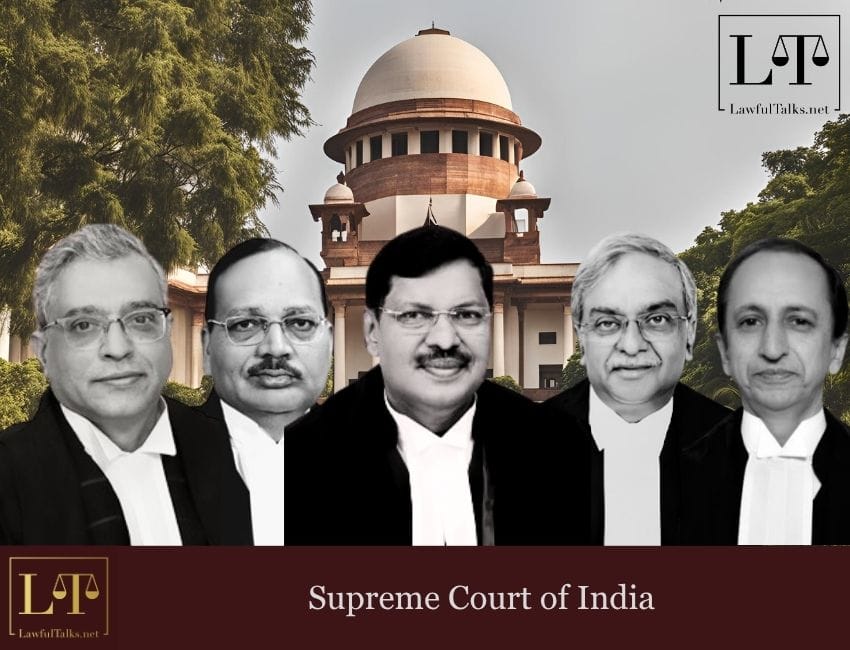Allahabad HC Sets Aside Afzal Ansari's Conviction, Allows Him to Continue as MP

The President of India, Droupadi Murmu, has raised 14 constitutional questions over the Supreme Court’s ruling of April 8, 2025, that set timelines for Governors and the President to act on bills passed by state legislatures. The reference, made by the President, challenges this verdict of the Supreme Court.

The Apex Court has constituted a five-judge constitutional bench of Chief Justice of India (CJI) BR Gavai, Justice Surya Kant, Justice Vikram Nath, Justice P S Narasimha, and Justice A S Chandurkar who are scheduled to begin hearing this from August 19.
April 8 Verdict: The Trigger
The reference stems from the Supreme Court’s April 8 judgment, which held that Governors must act promptly on bills, and if a bill is reserved for the President, a decision must be taken within three months. The court termed Tamil Nadu Governor R N Ravi’s withholding of assent to 10 bills as “illegal and erroneous”, as they had already been reconsidered by the state assembly.
This is a significant development that could redefine the constitutional functioning of Indian federalism. The Supreme Court has issued notices to the Centre and all states in response to the Presidential reference under Article 143(1) of the Constitution.
The Reference
The 14 critical constitutional questions in the President’s reference, mainly focused on:
-
Whether Governors and the President are bound by judicially prescribed timelines for assenting to or returning state bills ?
-
Whether their actions under Articles 200 and 201 are justiciable — i.e., subject to court review — in the absence of explicit timeframes in the Constitution?
-
Whether Article 142 empowers courts to substitute or modify constitutional procedures in such cases ?
Key Questions Raised by the President:
1. Is the exercise of discretion by the President and Governors under Articles 200 and 201 justiciable?
2. Can the courts impose timelines in the absence of such provisions in the Constitution?
3. Is Article 361 — which grants immunity to the President and Governors — an absolute bar to judicial review of their actions?
4. Can courts examine a bill’s content before it becomes law?
5. Can judicial orders under Article 142 override or substitute constitutional powers?
Federal Implications & Legal Clash
States like Kerala and Tamil Nadu have expressed intent to challenge the maintainability of the reference itself, highlighting potential friction between the Union and state governments.
The reference also noted that many states are invoking Article 32 to approach the SC for remedies, rather than using Article 131, which deals with Centre–state disputes, raising concerns about procedural correctness.
President Murmu stressed that "deemed assent" has no place in the constitutional framework, and any delay or silence on a bill should not be interpreted as approval.
What’s at Stake?
This case is expected to have far-reaching consequences on Legislative efficiency, Centre–state relations, judicial interpretation of constitutional discretion and balance of powers under the federal structure.
The outcome of the constitutional bench ruling could set a historic precedent in defining boundaries of judicial review and executive discretion under the Indian Constitution.

Aishwarya Yashwantrao
Advocate, Bombay High Court
Latest Posts
Categories
- International News 19 Posts
- Supreme Court 390 Posts
- High Courts 383 Posts



















































































































































































































































































































































































































































































































































































































































































































































































































